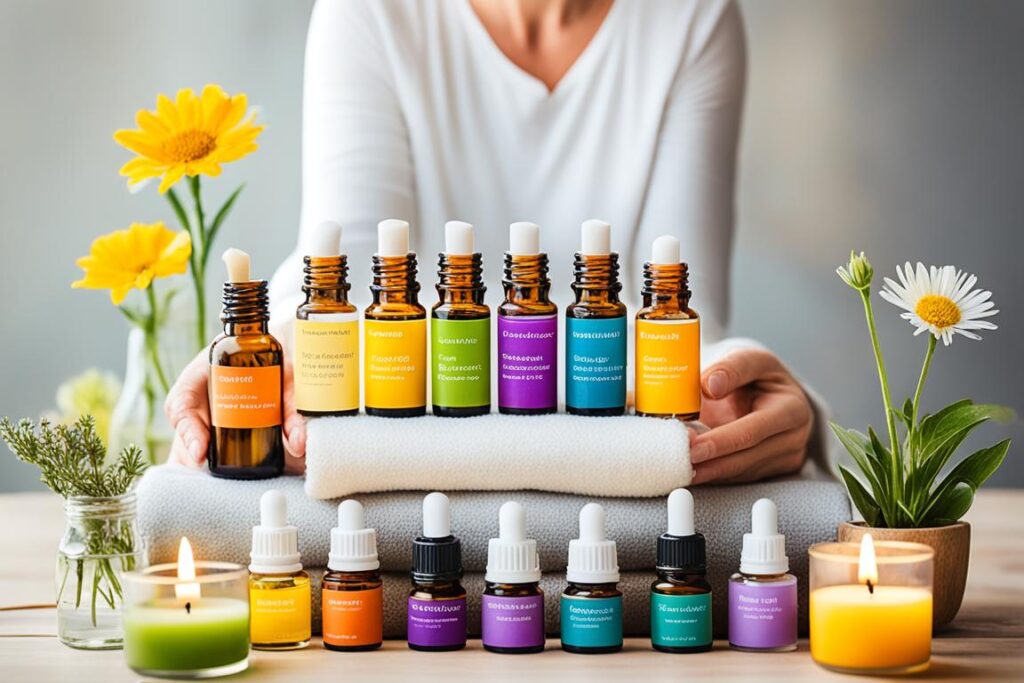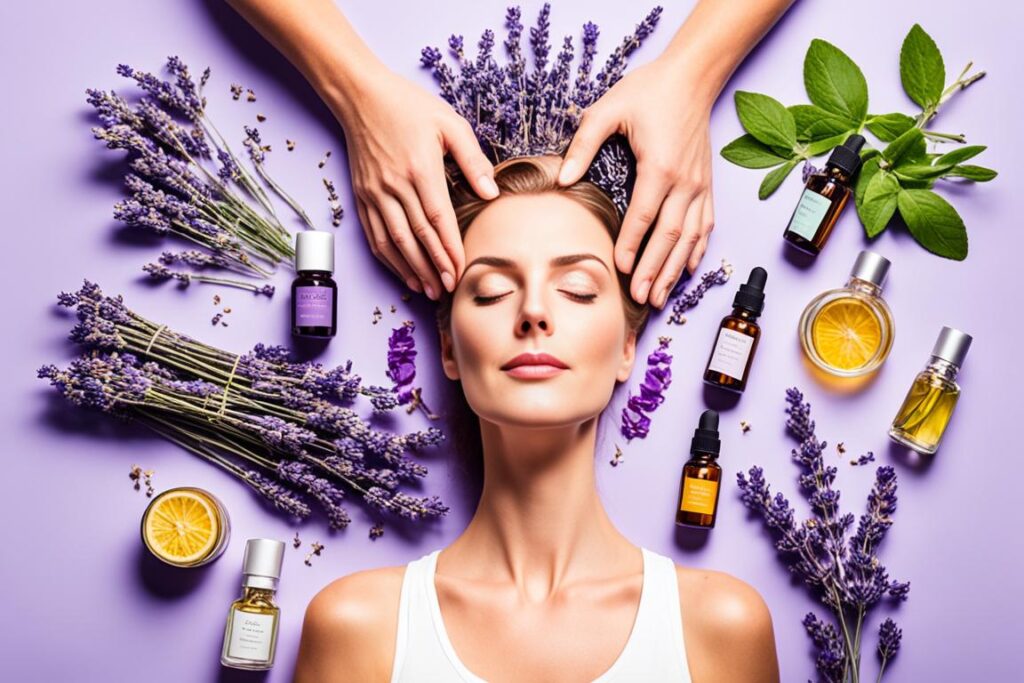It is important to know The Role of Fragrances in Wellness and Self-Care. They are linked to the part of our brain that controls emotions. This makes scents powerful in bringing back memories and feelings. Smells can actually spark our limbic system, which controls how we remember, make choices, and feel emotionally. Because of this, the scents around us can change our mood and boost our well-being, calming us or making us feel happy.
Adding smells, especially essential oils, to our well-being techniques has become popular. Psychologists see this as a way to control emotions, relax, and stay mindful. We can use calming scents in things like sensory self-care boxes or in calm breathing. This can make us feel peaceful and calm in our daily life.
Key Takeaways:
- Fragrances can have a powerful influence on our emotions and well-being.
- Inhaling aromas can stimulate the limbic system, affecting our mood and overall well-being.
- Using fragrances, particularly essential oils, in self-care practices can promote emotional regulation, relaxation, and mindfulness.
- Sensory self-care boxes and calm breathing exercises are effective ways to incorporate fragrances into wellness routines.
- Intentional use of scents can contribute to a greater sense of tranquility and well-being in our daily lives.
The Impact of Fragrances on Mental Health and Well-being
Fragrances really influence our mental health and how we feel. Aromatherapy uses essential oils to help with depression and anxiety. Studies show scents like lavender can make you feel less anxious and more relaxed.
Using smells in your self-care can make a big difference. It can help you deal with stress and control how you feel. Daily use of aromatherapy can bring calm and make you feel better. Even though it’s not a cure, it can help keep your mood positive and uplift your environment.
The Benefits of Aromatherapy for Mental Health
Aromatherapy, using essential oils, is great for your mind and mood. Inhaling these oils affects your brain’s emotional center. This can lower stress, improve sleep, and make you feel happier.
Some essential oils, like lavender and lemon, calm anxiety and depression. They make you relax, reduce stress, and create a peaceful place.
Oils such as peppermint or rosemary can also lift your spirits. They can make you feel more alert and productive. Including scents in self-care can improve your mental health and sense of well-being.

Integrating Fragrances into Self-Care Practices
Using scents in self-care can really make a difference in how you feel. Here are some tips for adding fragrances to your routine:
- Create a calming atmosphere with scented candles or essential oil diffusers.
- Add a few drops of your favorite essential oil to your bathwater for a relaxing soak.
- Keep a small bottle of an uplifting scent in your bag for a mood boost.
- Try different scents to see which ones help you most.
It’s key to take care of your mental health and find what self-care methods suit you. Fragrances are a great way to improve your mood and well-being, creating a better space for self-care.
Functional Fragrances for Enhancing Self-Care
Functional fragrances are becoming more popular. They help make self-care routines better. These scents smell great and have added benefits. They can relieve stress, boost your mood, and help you work better.
Lavender, chamomile, and clary sage are popular because they calm us. They help us feel peaceful and calm. These smells can change how we feel, which is important when things are uncertain.
Adding these fragrances to your day can make you feel more positive. You can use them in perfumes, candles, or bath items. Choosing the right scent for you is key to enjoying their benefits.
Using these fragrances in your self-care routine is powerful. They can make you feel better, less stressed, and more focused. Functional fragrances are an easy way to take care of yourself. They help create balance and normality in our lives.



